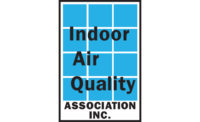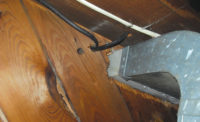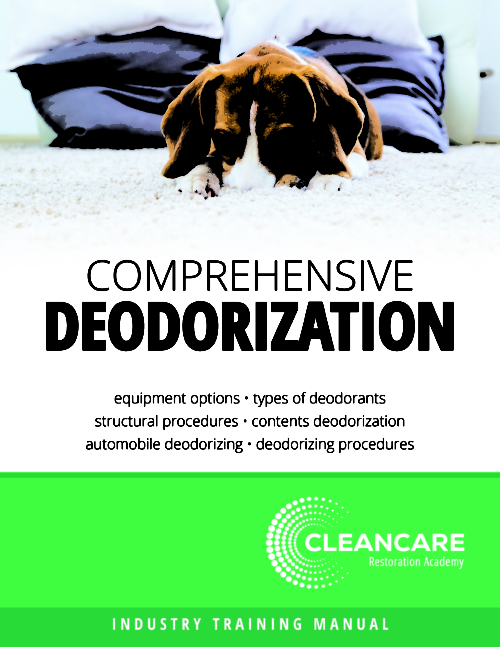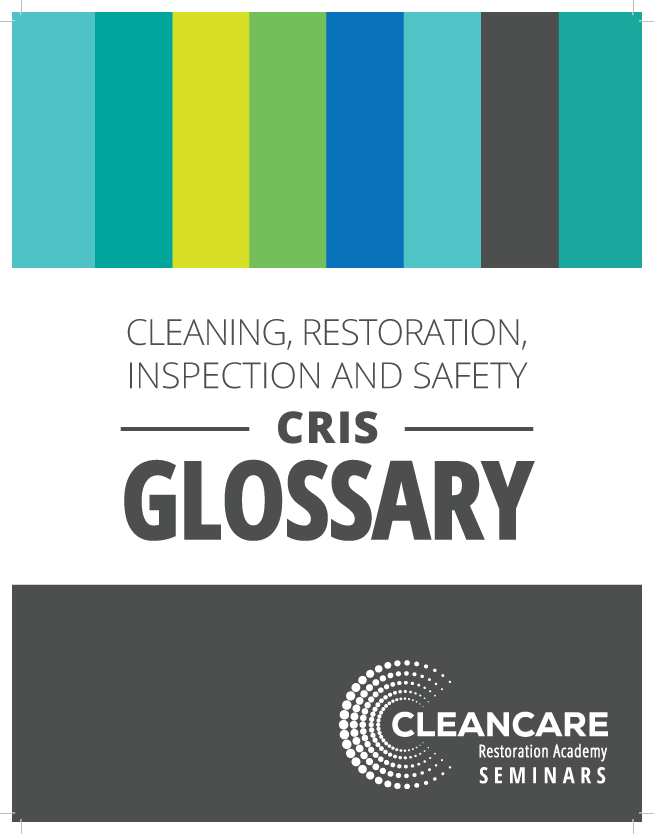March IAQA Legislative Update: Mold, Lead Paint, Radon, Asbestos & More
Legislative update details changes in California, Massachusetts, Minnesota, Texas, & abroad

Regular updates from the IAQA’s Government Affairs Committee are back! The committee is dedicated to serving IAQA’s members and the public by proactively reaching out to legislators and regulators to stay abreast and influence, for the better, future legislation. The goal is to be responsive to members who have questions and interest in any legislation that affects air quality in the built environment, and help build relationships with legislators to they can easily get expert opinions from IAQA members.
This month’s update could cover only a fraction of the committee’s ongoing activity. Within, there are updates on mold, lead paint, radon and legionella. Activity covered includes California, Australia, India, U.S. Federal, Massachusetts, Minnesota, and Texas.
CALIFORNIA: MOLD
In October 2015, Governor Brown signed Senate Bill 655 into law, and elements of new mold-related regulation are being introduced statewide in an ongoing implementation process since Jan.1. IAQA has taken a very active interest in the multiple aspects of this governmental action, but this initiative currently needs both a coordinator and special advisors to actively engage this potentially impactful measure.
With the Governor’s signature, additions to the California Health and Safety Code were made in Sections 17920 and 17920.3. Details of how the rules will be enacted are still in development. At present, there are already several key elements of immediate interest:
- Mold is now a defined substandard condition in housing in California, and the presence of mold can trigger enforceable corrective actions. In short, mold is a type of inadequate sanitation, and therefore a substandard condition in housing. Minor mold growth attributed to proper and ordinary activity, such as showers, is exempt.
- Either a health or code enforcement officer will determine the presence of visible mold growth. A state-mandated program will require having on staff enforcement officials that have been trained in mold inspection practices. IAQA-GA will be placing high importance on how these municipal and county officials will be educated about mold, and whether local regulatory programs will be established for mold such as there has been for asbestos and lead paint for many years. IAQA-GA will actively offer the knowledge of our members as subject-matter-experts to provide assistance with the training of officials that will be necessary. There is no current indication of the time frame for either the development of training or when it will commence.
- Enforcement authority granted local officials includes an unequivocal ability to require not only the cleaning and removal of moldy materials, but also the correction of the causal sources of moisture. For this provision as well, IAQA –GA recognizes that our members nationwide are very interested in how this provision will be put into action.
- Landlords, tenants and mold are a central focus of the new requirements in California. Upon notification of suspected mold by a tenant, landlords have the opportunity to correct the situation before citations can be issued by enforcement officials.
On Feb. 19, the IAQA San Diego Chapter hosted a workshop for members and the public that featured a discussion of Senate Bill 655 and its incorporation into the state’s Health and Safety Code. Chapter Director Peter Sierck has agreed to interface with the Government Affairs committee after the workshop to share member concerns and questions. In addition, the new IAQA Los Angeles Chapter being formed will include the new mold regulations among its focus issues for meetings and workshops in 2016.
As IAQA becomes more directly involved, this space will feature more information on the “rubber meets the road” nature of implementation in California. In addition, the Government Affairs committee is actively investigating indications that legislators in California are also drafting bills for licensure of assessors and remediators for mold.
The Government Affairs Committee is currently seeking a Coordinator for this initiative in California.
MASSACHUSETTS: LEAD PAINT
As part of a review of the necessity of all regulation which was mandated by Gov. Baker, the Massachusetts Department of Public Health has been holding periodic meetings of a public-private Environmental Working Group (EWG) composed of public health officials and representatives of the state’s community of lead paint professionals. Among the latter, the Lead and Environmental Hazards Association (LEHA) was invited to bring participants to these discussions. In turn, LEHA invited IAQA Government Affairs to be a part of their delegation at the most recent meeting in October 2015.
Among the issues being discussed are recent policy interpretations on the encapsulation of lead-based paint that industry professionals feel make that abatement methodology nearly unusable. Massachusetts (along with Maryland) was the first to have a program for the encapsulation of lead-based paint, and was for many years a leader in the development and use of encapsulation. However, the regulations for this method of abatement have not been revisited in depth for almost twenty years, resulting in Massachusetts regulations now being arguably antiquated compared with other states.
One example is that Massachusetts is the only state where encapsulation cannot be used as lead compliance method for exterior painted surfaces. By March 2016, it is expected that the Department of Public Health will release proposed changes to its lead rules, the EWG will reconvene for multiple meetings, and the public will be invited to comment and participate. IAQA-GA currently has a opportunity to be a full participant in the reform process on behalf of our members and the public.
MINNESOTA: RADON
Since mid-2015, the IAQA Government Affairs Committee has been seeking information and involvement with the Minnesota Department of Health’s development of new radon rules, including the licensure of assessors. Professionals and companies that measure for radon, mitigate for radon or perform radon analysis will be required to be licensed and use system tags.
IAQA-GA is engaged with the American Association of Radon Scientists and Technicians (AARST) on this initiative. According to AARST, Minnesota would become the 16th state with radon-related regulation/legislation, and as the most recent could prove very influential on other states with future regulatory development. Minnesota is following the examples of legislation in Ohio and Illinois that are considered models in radon rule-making.
The Minnesota Department of Health’s goal is to have rules that can be activated on Oct. 1, 2017. Three meetings of the MN Advisory Committee were held in 2015, and four more are scheduled for 2016. While there is no statutory requirement to seek input from interested parties, the committee is encouraging contributions from industry and the public. In that regard, IAQA-GA plans to send out a request for comment from our membership to see if there is consensus on any aspect of the proposed rules, as constituted, which would enable the committee to take an advocacy position.
On Feb. 10, IAQA Government Affairs sent an email blast to our members in Minnesota seeking a volunteer interested in becoming a Special Advisor for this initiative. Several IAQA members stepped forward, including one that already is familiar with the director of the state’s radon program. The IAQA-GA Coordinator for Minnesota and that special advisor candidate are expected to meet and possibly accelerate active involvement before the beginning of March.
TEXAS: DISASTER RESPONSE
Effective June 16, 2015, the Texas legislature passed HB 2358 which amends both the Business and Commerce Code and Tax Code to implement the "Facilitating Business Rapid Response to State Declared Disasters Act".
This Act provides exemptions from taxes and specific registration and licensing requirements for certain out of state businesses and their employees who are in Texas solely to perform services during a disaster recovery period.
The Act specifically defines the type of services which qualify for exemption, the requirements for official acknowledgement of the disaster and the time periods during which the exemptions are granted. The exemptions include: (1) waiver of notice to State officials; (2) waiver of certain state and local taxes; (3) waiver of licensing and registration requirements (as long as businesses and individuals are in compliance with requirements in their home states) and (4) certain effective time periods during which the exemptions are in effect. A review of the specific provisions of the law should be undertaken if you or your employer perform emergency services in Texas.
UNITED STATES: LEAD PAINT
For many contractors that gained certification as lead-safe renovators during the nationwide rollout of the EPA’s Lead: Renovation, Repair and Painting (RRP) program, there is an impending deadline to be recertified by the end of March 2016. That deadline represents only an early wave of the required recertifications.
The EPA’s RRP program mandated, as required under the omnibus Title X federal lead paint legislation of 1992, that contractors of any trade disturbing relatively small amounts of lead containing paint must have training and certification in order to employ lead safe work practices. As certifications expire, there are thousands of diverse companies from abatement contracting firms to remodeling companies that face recertification in 2016 and 2017.
During the past year, both inside and outside the EPA there have been extremely active debates regarding reforms of the RRP program that might streamline and simplify recertification in 2016. In November 2015, an official from EPA Region 1, speaking to IAQA-GA off the record, mentioned that permitting on-line training for recertification instead of in-person refresher classes were a likely possibility. Moreover, it was possible that online refresher training for recertification would be adopted only with a reduction in the interval before the next recertification to as little as one year. By contrast, renovators willing to undergo in-person refresher training might have their interval extended to as much as five years.
In late January, the National Association of Home Builders (NAHB) published a press release which stated that the Remodelers Committee of NAHB was instrumental in brokering a deal with the White House’s Office of Management and Budget (OMB) to clear a reform proposal for the RRP program that included online training for recertification. The brief from NAHB also reported that the proposed final rule would eliminate the requirement that both contracting companies and individual personnel have to be certified, and that RRP training providers would no longer need to be accredited. The press release was clear that the EPA was still to finalize and officially publish the final rule.
On Feb. 17, the final rule document making changes to RRP that impact recertification (among other reforms) was published by the EPA.
The provisions of the EPA’s final rule became effective immediately, and the EPA’s summary encapsulated the new developments to RRP involved as follows:
“The revisions are intended to improve the day-to-day function of these programs by reducing burdens to industry and EPA, and by clarifying language for training providers, while retaining the protections provided by the original rules. First, EPA is modifying the requirement that the renovator refresher training for individuals have a hands-on component. Second, the Agency is removing jurisdiction-specific certification and accreditation requirements under the LBP Activities program in States where EPA administers the program. Previously, this program required that training providers, firms and individuals seek certification in each jurisdiction (e.g., a State) where the organization or person wanted to work. Third, EPA is adding clarifying language to the requirements for training providers under both the RRP and LBP Activities programs."
While there are numerous levels of detail, the EPA’s final rule clarified that an online option for refresher training, without an instructor and at the attendee’s own pace, would be deemed acceptable. However, the renovator opting for the online option now will be required to attend an in-person refresher complete with hands-on instruction for the subsequent refresher training in three years. If a renovator opts for taking a classroom, instructor-led refresher course that includes hands-on elements, the recertification requirement will not take place until after five years from the previous recertification.
The EPA final rule on reform of RRP also notably eliminated the requirement that a state-specific RRP certification would be required for every state in which a renovator is to work. The EPA’s 2/17/16 announcement stated that the “EPA does not believe it is necessary for the Agency to certify or accredit the same applicant multiple times…one EPA-administered State jurisdiction should be sufficient.” Further, EPA stated “, firms, individuals and training providers will receive one certificate that will allow them to work in all EPA-administered States instead of one certificate per State.”
It is important to note that the EPA rule reforms pertain to the states where the agency directly administers the RRP program. There are 14 states that have been authorized to operate their own RRP programs, and in each of those states renovators will have to contact the coordinating agency to determine whether that state might implement similar reforms. According to EPA.gov, the RRP direct implementation states are: Alabama,Delaware, Georgia, Iowa, Kansas, Massachusetts, Mississippi, North Carolina, Oklahoma, Oregon, Rhode Island, Utah, Washington, and Wisconsin
AUSTRALIA: MOLD, ASBESTOS
The Mould and Restoration Conference and Expo is an important national gathering of indoor air quality practitioners from across Australia. The 7th annual edition of the conference is scheduled for June 2nd and 3rd in Melbourne, VIC, and IAQA-GA will have a representative in attendance.
On Feb. 14, IAQA-GA participated in a Skype conference call with the conference organizers. Initial discussions were held on the concept of bringing together Australian regulators for a meeting in the context of the conference. The intention is to determine whether there are common elements among the regulatory agencies from each Australian state, and whether any imminent regulatory developments will impact IAQA members. Initial steps will focus on identifying primary points of contact at the most pertinent Australian government entities.
INDIA: INDOOR AIR QUALITY
During the IAQA National Meeting in January, representatives from the IAQA Board of Directors and the Indian Society for Heating, Refrigeration & Air Conditioning Engineers (ISHRAE) held a meeting regarding the creation of the first chapter for IAQA in India. The key consensus outcome from this meeting is that the burgeoning interest in indoor air quality in India makes an IAQA chapter extremely viable. During the discussion, the ISHRAE representatives noted that the growing interest in IAQ included intentions expressed by the Indian Central Pollution Control Board to ramp up involvement by that agency.
ISHRAE has a member sitting on the key committee of that agency, and he shared that greater expertise in indoor air quality is needed. Moreover, while there is a national ambient air quality standard in India, there are not currently indoor air quality standards. ISHRAE has a position paper on the subject already in place, with a goal of establishing an indoor environmental quality standard promulgated within 2 years. The assistance of IAQA Government Affairs was welcomed by the ISHRAE representatives, and further discussions are expected in the coming months.
IAQA Government Affairs is currently seeking a coordinator for this initiative.
A Note from the IAQA Government Affairs Committee:
We wish to thank the enthusiastic readers of this space in the past year, and apologize for not producing an update for the past several months. The hiatus was only due to time impingements on our all-volunteer staff. Moving forward, IAQA Government Affairs has added resources by doubling the size of our committee (in the past year), and recently organized a writing group from our ranks to ensure that this update will be reliably released monthly in 2016. More volunteer service equals more energy and efficacy into the advocacy efforts on behalf of our members and the public.
Since it has been a few months between updates, our committee missed the opportunity to publish a year-in-review. However, we are pleased to note that one of our dedicated volunteers, Jennifer Savilla, single-handedly worked with the committee’s initiative coordinators and special advisors to produce a 2015 Legislative and Regulatory Summary. This document reviews over 100 governmental actions which our committee is tracking actively or which were part of our activity in the past year. The complete Summary is available via the Member Portal at http://www.iaqa.org/government-affairs.
Looking for a reprint of this article?
From high-res PDFs to custom plaques, order your copy today!






